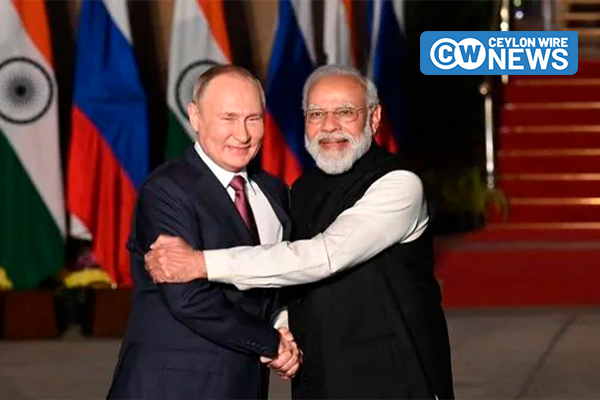India’s Prime Minister Narendra Modi starts a two-day visit to Russia on Monday, his first since Moscow launched its invasion of Ukraine. This conflict has complicated the relationship between the longtime allies and pushed Russia closer to India’s rival, China.
During the visit, Prime Minister Modi will meet President Vladimir Putin in the far eastern port of Vladivostok. The two leaders last met in person in September 2022 at a Shanghai Cooperation Organization (SCO) summit in Uzbekistan.
Russia has maintained strong ties with India since the Cold War, and New Delhi’s importance as a key trading partner has grown since Russia’s invasion of Ukraine in February 2022. Following sanctions from the United States and its allies, China and India have become major buyers of Russian oil.
Under Modi’s leadership, India has avoided condemning Russia’s war in Ukraine while emphasizing the need for a peaceful settlement. However, the partnership between Moscow and New Delhi has become strained as Russia has developed closer ties with China due to the hostilities in Ukraine.
Prime Minister Modi notably skipped the recent SCO summit in Kazakhstan. Chietigj Bajpaee, a senior South Asia research fellow at Chatham House, noted that India is becoming increasingly estranged from forums where Russia and China play prominent roles.
Tensions between India and China have been high since a violent confrontation along the disputed China-India border in June 2020, which resulted in the deaths of 20 Indian soldiers and four Chinese soldiers. These tensions have affected India’s view of its relationship with Moscow.
Despite these complications, Modi aims to maintain close relations with Russia, a crucial trading partner and major defense supplier for India. With Western sanctions blocking Russian oil exports, India has become a key buyer of Russian oil, now accounting for more than 40% of its oil imports.
India remains heavily dependent on Russia for military supplies, although it has diversified its defense procurements due to disruptions caused by the conflict in Ukraine. Bajpaee highlighted that 60% of India’s military equipment is of Russian origin, and both countries are expected to finalize a military logistics agreement to enhance defense cooperation.
India has adopted a neutral stance on Russia’s war in Ukraine, neither condemning nor condoning it, and has called for negotiations to end the conflict. This stance has bolstered Putin’s efforts to counter Western dominance in global affairs.
Facing an arrest warrant from the International Criminal Court over actions related to the Ukraine war, Putin’s foreign travel has been limited. Modi’s visit could help boost Putin’s image on the world stage. Theresa Fallon, an analyst at the Center for Russia, Europe, Asia Studies, noted that Putin’s recent travels demonstrate his efforts to show Russia’s global influence.
Alexander Gabuev, head of the Carnegie Russia Eurasia Center, stated that Putin’s interactions show that he “is far from isolated” and that Russia should not be discounted.
Trade development will be a key focus of Modi’s visit, particularly plans to develop a maritime corridor between India’s major port of Chennai and Vladivostok. India-Russia trade has seen a sharp increase, reaching nearly $65 billion in the 2023-24 financial year due to strong energy cooperation.
Imports from Russia reached $60 billion, while exports from India were $4 billion in the same period. Indian Foreign Secretary Vinay Mohan Kwatra stated that India aims to correct the trade imbalance by increasing its exports, which include drugs, pharmaceuticals, telecom instruments, iron and steel, marine products, and machinery. Major imports from Russia include crude oil, petroleum products, coal, pearls, precious stones, fertilizers, vegetable oil, and precious metals.









